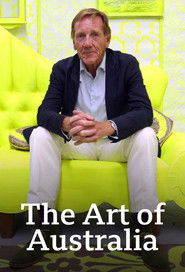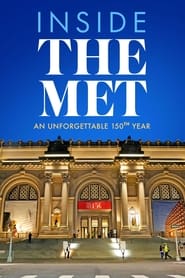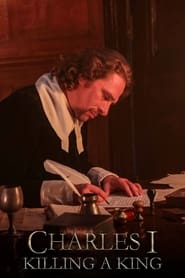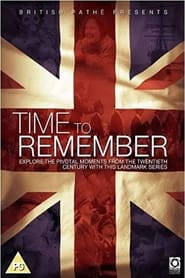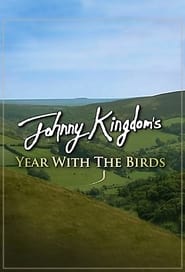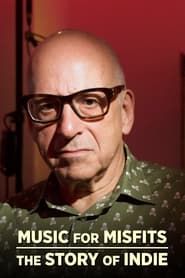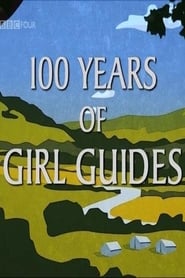Bbc Four TV Series - Page 20
-
The Art Of Australia
2013
The Art Of Australia
2013
Former director and chief curator of the Art Gallery of New South Wales, Edmund Capon explores the story of Australian art through the country's rich cultural traditions stretching back 30,000 years. -
Inside America's Treasure House: The Met
2021
Documentary series filmed inside America's biggest art museum as it prepares for its 150th anniversary, only to endure closure due to Covid, demands for greater diversity and financial disaster. -
Light Fantastic
2004
Light Fantastic
2004
Light Fantastic is the title of a television documentary series that explores the phenomenon of light and aired in December 2004 on BBC Four. The series comprised four programmes respectively titled: "Let There Be Light"; "The Light of Reason"; "The Stuff of Light"; and "Light, the Universe and Everything." The material was presented by Cambridge academic Simon Schaffer. -
The Man Who Walked Across the World
2007
Series of documentary travelogues following in the footsteps of 14th Century Moroccan scholar Ibn Battutah, who covered 75,000 miles, 40 countries and three continents in a 30-year odyssey. -
Living with Modernism
0000
Living with Modernism is a television documentary series first broadcast on BBC Four in 2006. It is a companion series to Marvels of the Modern Age on BBC Two, and was followed by a sister series Living with the Future in 2007. In each of six episodes, presenter Simon Davis visits a private family house designed by an architect associated with the modern movement. -
Charles I: Killing a King
2019
Documentary series that investigates a momentous event in history, the trial and execution of King Charles I, an act that changed politics and power in England forever. -
Time to Remember
2010
Time to Remember
2010
From newsreels and films of the early twentieth century, this series gives us a look at how the first half of the 20th Century saw itself. -
Order & Disorder
2012
Order & Disorder
2012
-
Johnny Kingdom's Year with the Birds
2010
Johnny Kingdom spends a year following and filming some of the bird species he finds near his home and on his land. -
How does It Work?
2012
How does It Work?
2012
-
The Protestant Revolution
2007
This is a story of a revolution which has affected every person in the West, and nearly every country in the world. It is a revolution which influences the very fabric of existence – from what we do for a living, to who we vote for, who we go to war with and how we see ourselves as individuals and as nations. The series investigates the scientific, cultural, economic and political aspects of the movement with the aid of key academic witnesses, and concludes that the reach of Protestantism is so profound that it is impossible to imagine the modern world without it. -
The Worst Journey in the World
0000
The Worst Journey in the World is a 2007 BBC Television docudrama based on the memoir of the same name by polar explorer Apsley Cherry-Garrard. The narrator Barry Letts, best known for his tenure as the producer of Doctor Who, played Cherry-Garrard in the 1948 film Scott of the Antarctic. -
Doctors to Be: 20 Years On
0000
Doctors to Be: 20 Years On is a biographical documentary series first broadcast on BBC Four by the BBC in 2007. It is a sequel to the series about ten medical students Doctors to Be, and gives an update on the careers and lives of the same people after they had qualified. -
Music for Misfits: The Story of Indie
2015
A look at the development of British indie music, born in the 1970s when the music industry was controlled by the major record labels and releasing a record independently seemed an impossible dream. -
Rhythms of India
2019
Rhythms of India
2019
Composer Soumik Datta travels around India exploring the country's rich and diverse culture and history through its music. -
The Department Store
2008
The Department Store
2008
-
100 Years of Girl Guides
0000
100 Years of Girl Guides is a BBC television documentary. It was shown on the digital television station BBC Four on Sunday 16 August 2009 at 21:00. The programme was presented by Dominic West and followed the story of the girl guides from its beginnings up to the centenary in September 2009. The show interviews a number of former Girl Guides from veterans to such household names as Kelly Holmes, Clare Short, Kate Silverton and Rhona Cameron. -
Smashing Hits! The 80's Pop Map of Britain & Ireland
2018
Midge Ure and Kim Appleby explore the distinct sounds that came out of different parts of Britain and Ireland in one of pop's golden decades.
